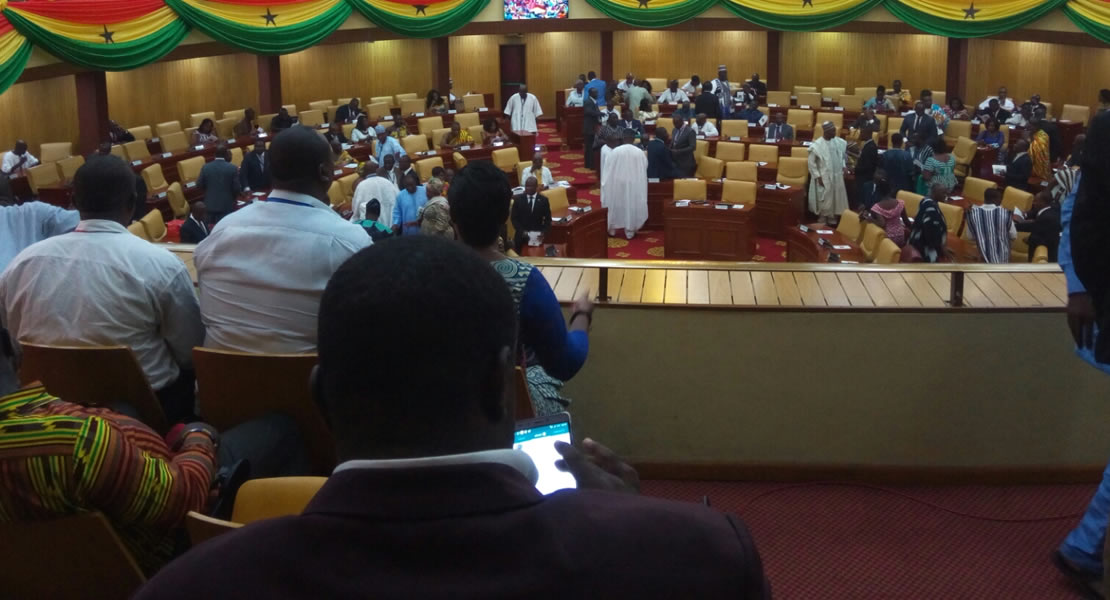
Majority of the new districts recently proposed by the Mills administration are in danger of being thrown out by Parliament, Citi News Parliamentary correspondent Richard Sky reports from the 230-member legislature.
Many of the Legislative Instruments (LIs) seeking to give legal backing to the creation of the new districts have been found to have crippling mistakes and misrepresentations leading to as many as 30 aggrieved Members of Parliament, Traditional Authorities and individuals filing petitions in Parliament against the creation of the proposed legislation, our correspondent said after laying hands on a copy of a Parliamentary report on the matter.
Per the nation’s laws, the proposed districts must come into force by close of day Wednesday, exactly 21 days after the LIs covering the proposed new local assemblies were laid in Parliament for scrutiny and subsequent approval.
But lawmakers are now in a what our correspondent called “a serious dilemma” over whether to stop the new districts from coming into force by turning a blind eye to the myriad of “constitutional and legal flaws seen in the LIs or step in to derail the new creations with a massive two-third majority vote.”
At least 77 of the new districts proposed by the Mills-led NDC administration have been found to have “problems,” our correspondent said.
The extent of legal and constitutional problems presented by the government’s Legislative Instruments on the new districts compelled the Joint Parliamentary Committee that sat on the proposed legislation to recommend immediate withdrawal of the bills, failing which the House may have to annul those LIs seen to have offended the nation’s laws.
“….The Committee strongly recommends that the instruments listed as appendices B and C be either withdrawn by the Honorable Minister for Local Government and Rural Development or annulled by the House,” the Joint Committee on Subsidiary Legislation and Local Government and Rural Development said in its March 2012 report to the House.
The report said: “Allowing these interments to come into force with all the defects will mean an amendment to LI 1983, which is illegal. It will also mean a contravention of the Constitution and the Local Government Act 1993, (Act 462).”
But, the committee has recommended that the instruments listed at appendix A, which has 23 LIs, “be allowed by the House to pass in accordance with article 11(7) of the Constitution”.
“The committee again wishes to strongly recommend that in future, the House demands the population figures as well as the recommendation of the Electoral Commission relative to the creation of districts. This will enable effectively scrutinise the instruments to ensure that they meet the requirements of the Local Government Act 1993, Act 462 and all other relevant laws,” the report said.
Our correspondent quoted senior Parliamentary sources as saying “but for a recent Supreme Court ruling, which forbids Parliament from making amendments to LIs laid before the House in respect of new District Assemblies,” the legislature could have cured the crippling legal and Constitutional problems with the new LIs.
Their claims have been confirmed by the report of the Joint Committee, which said “…The Committee, in arriving at its recommendations was mindful of the provisions of Article 11(7) of the Constitution and affirmed by the Supreme Court in the recent case of Richard Odum vas Electoral Commission and the Attorney General.
“The Supreme Court held in that ruling that Parliament has no power to effect any
amendment in Legislative Instruments laid in the House. This means that changes made to Instruments laid in the House are of no effect and therefore, the original Instruments will hold sway irrespective of any defect”.
Our correspondent said “MPs must debate and take a decision on the report of the Joint Committee within the next 36 hours, failing which the defective LIs will automatically become effective, opening the flood gates for possible lawsuits against the government”.
Source: Citifmonline.com